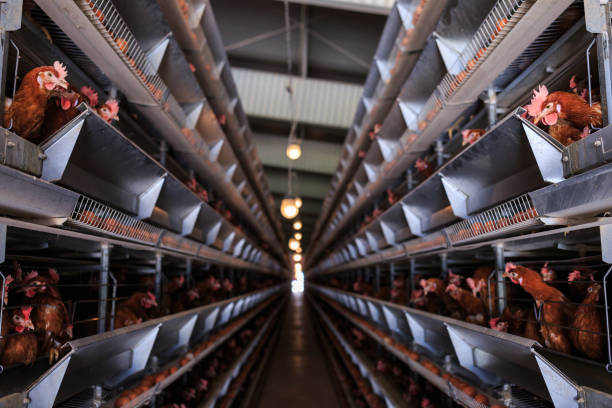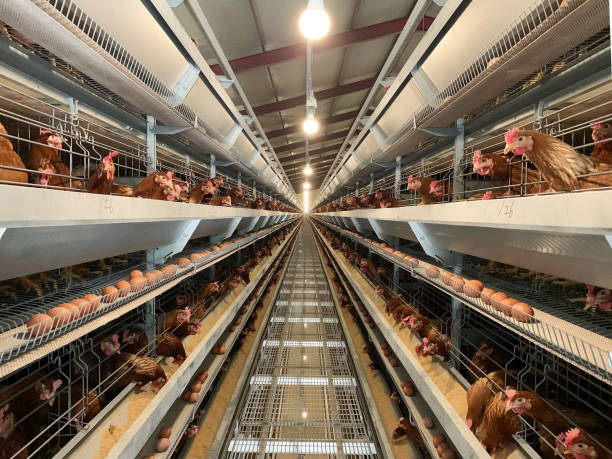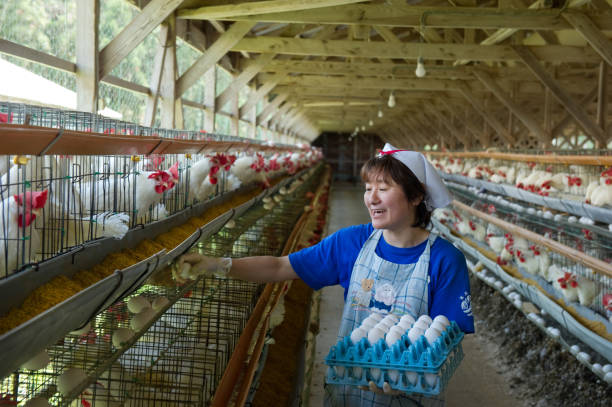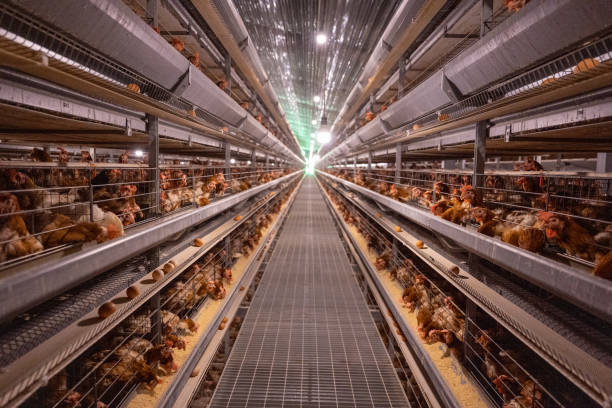
Finding Reliable Chicken Cage Equipment Suppliers in Africa
Finding Reliable Chicken Cage Equipment Suppliers in Africa
The poultry industry in Africa is experiencing robust growth, driven by increasing demand for poultry products and a growing awareness of the importance of food security. As such, the need for efficient and reliable chicken farming equipment has never been greater. For poultry farmers looking to maximize their yields and streamline operations, finding a reputable chicken cage equipment supplier is paramount. This article explores the key factors to consider when selecting a supplier in Africa, the types of cages available, and the benefits of investing in quality equipment.

**Understanding the African Poultry Market**
The African poultry market is diverse, with varying levels of development and infrastructure across different countries. Some regions have well-established commercial farms, while others are dominated by smallholder farmers. Regardless of the scale of operation, the common goal is to improve efficiency, reduce costs, and increase productivity. Chicken cages play a crucial role in achieving these objectives by optimizing space utilization, improving hygiene, and simplifying management practices.
**Why Invest in Chicken Cage Systems?**
Before diving into how to find the right supplier, it’s important to understand why chicken cage systems are a worthwhile investment. Here are some compelling reasons:
* **Improved space utilization:** Cages allow for higher stocking densities compared to free-range systems, maximizing the number of birds that can be housed in a given area.
* **Better hygiene and disease control:** Cages keep chickens separated from their droppings, reducing the risk of disease outbreaks and improving overall hygiene.
* **Easier egg collection:** For laying hens, cages with sloped floors make egg collection quick and efficient, reducing egg breakage and contamination.
* **Reduced feed wastage:** Cages often incorporate feed troughs that minimize spillage, leading to significant savings on feed costs over time.
* **Simplified management:** Cages make it easier to monitor individual birds, administer medication, and manage feeding and watering schedules.
**Key Considerations When Choosing a Supplier**
Selecting a chicken cage equipment supplier is a critical decision that can significantly impact the success of your poultry farm. Here are some key factors to consider:
* **Reputation and Experience:** Look for suppliers with a proven track record in the African market. Check online reviews, ask for references from other farmers, and assess their experience in providing solutions tailored to the specific challenges of the region. A supplier who understands the local climate, common diseases, and prevailing farming practices is more likely to provide appropriate and effective solutions.
* **Product Quality and Durability:** The quality of the cages is paramount. They should be constructed from durable, corrosion-resistant materials that can withstand the harsh conditions often found in African poultry houses. Consider the gauge of the wire, the quality of the welds, and the overall construction of the cage. Cheaper options may seem attractive initially, but they often result in higher maintenance costs and shorter lifespans.
* **Range of Products and Customization Options:** Different farms have different needs. A good supplier should offer a range of cage types and sizes to accommodate various flock sizes and farming practices. They should also be willing to customize cages to meet specific requirements, such as adapting them to existing building layouts or incorporating specific features.
* **After-Sales Service and Support:** This is where many suppliers fall short. Ensure the supplier offers comprehensive after-sales service, including installation assistance, maintenance training, and readily available spare parts. A responsive and helpful after-sales team can make a significant difference in minimizing downtime and maximizing the lifespan of your equipment.
* **Price and Value:** While price is always a consideration, it shouldn’t be the sole determining factor. Focus on the overall value proposition, considering the quality of the cages, the level of service, and the long-term cost of ownership. A slightly more expensive, high-quality cage that lasts longer and requires less maintenance may ultimately be a better investment than a cheaper, inferior option.
* **Compliance with Standards:** Check if the supplier’s products meet relevant international or local standards for animal welfare and safety. This is particularly important for farms that export poultry products or adhere to specific ethical farming practices.
**Types of Chicken Cage Systems**
Several types of chicken cage systems are available, each with its own advantages and disadvantages. The best choice for your farm will depend on your specific needs, budget, and farming practices.
* **Layer Cages:** Designed specifically for laying hens, these cages typically feature sloped floors for easy egg collection, feed and water troughs, and ample space for the birds to move around comfortably. They are available in various configurations, including single-tier, multi-tier, and A-frame designs.
* **A-Frame Cages:** These are designed in an ‘A’ shape, where cages are arranged in two slopes that meet at the top. This structure is easy to manage and enables effective ventilation and cleaning.
* **H-Frame Cages:** These systems are designed with cages stacked on top of each other, creating an ‘H’ shape. They’re suitable for larger scale operations where vertical space can be maximized.
* **Flat-Deck Cages:** In a flat-deck system, cages are placed in a single tier on the ground or a raised surface. This system allows for easy access to feed and water and simplifies management.
* **Broiler Cages:** Used for raising chickens for meat production, broiler cages are designed to provide optimal growth conditions and maximize meat yield. They typically have larger floor areas than layer cages and are equipped with automatic feeding and watering systems.
* **Battery Cages:** Suitable for broilers, battery cages are arranged in rows, reducing the need for manual handling and feeding. This aids in producing a larger output in a more sustainable manner by reducing reliance on manual tasks.
* **Floor Systems with Slats:** These systems use raised slatted floors to separate the chickens from their droppings, promoting better sanitation and preventing disease. They are typically coupled with automated feeding and drinking lines to reduce labor.
* **Chick Cages:** Designed for young chicks, these cages provide a safe and comfortable environment for early growth. They are typically smaller and have finer mesh than cages for adult birds.
* **Manure Removal Systems:** The efficient disposal of manure is a vital consideration in confined poultry farming to maintain hygiene and minimize disease risks.
* **Automatic Scrapers:** These devices are designed to mechanically move manure from under the cages to a collection point. They can significantly reduce labor costs and improve overall cleanliness.
* **Belt Systems:** These systems utilize a conveyor belt beneath each row of cages to transport manure to a storage or disposal area. They are particularly well-suited to larger operations.
* **Automated Feeding Systems:** Automation in feeding is aimed to save labor and ensure consistent feed delivery.
* **Chain Feeding Systems:** A continuous chain carries the feed to all the cages, ensuring that each bird receives an adequate amount. This design minimizes feed wastage and labor.
* **Auger Systems:** These devices use a screw-type mechanism to deliver feed along a trough to the cages. They make it easy to control the amount of feed each bird receives.
* **Automated Drinking Systems:** Providing chicks and chickens with constant, clean water is critical for their health and growth.
* **Nipple Drinking Systems:** These leak-proof systems provide water on demand, reducing spillage and improving hygiene.
* **Cup Drinking Systems:** Cups constantly refill with water, always making fresh water available to the birds. They are easy to maintain and clean.
**Finding Suppliers in Africa**
Once you have a clear understanding of your needs and the factors to consider, the next step is to identify potential suppliers. Here are some strategies for finding reliable chicken cage equipment suppliers in Africa:
* **Online Research:** Use search engines to find suppliers operating in your region or those that export to Africa. Look for suppliers with informative websites, detailed product catalogs, and customer testimonials.
* **Trade Shows and Exhibitions:** Attend poultry and agricultural trade shows in Africa to meet suppliers face-to-face, see their products firsthand, and discuss your specific requirements.
* **Industry Associations:** Contact local poultry industry associations for recommendations and referrals. These organizations often have a list of reputable suppliers in the region.
* **Networking:** Talk to other poultry farmers in your area and ask for their recommendations. They may have valuable insights based on their own experiences.
* **Online Marketplaces:** Explore online marketplaces that specialize in agricultural equipment. These platforms often feature a wide range of suppliers and products.
**Questions to Ask Potential Suppliers**
When you have identified a few potential suppliers, it’s important to ask the right questions to assess their suitability. Here are some key questions to consider:
* **What types of cages do you offer, and what are their specifications?**
* **What materials are your cages made from, and what is their expected lifespan?**
* **Do you offer customization options to meet my specific needs?**
* **What is the price of your cages, including delivery and installation?**

* **What is your warranty policy, and what does it cover?**
* **Do you offer after-sales service and support, including installation assistance and maintenance training?**
* **Do you have references from other customers in Africa?**
* **What are your payment terms and shipping options?**
* **Do your products meet relevant international or local standards?**
**Negotiating with Suppliers**
Once you have gathered all the necessary information, it’s time to negotiate with the suppliers to get the best possible deal. Here are some tips for successful negotiation:

* **Be prepared:** Know your budget, your requirements, and the market price for similar products.
* **Get multiple quotes:** Compare quotes from different suppliers to get a sense of the market price and identify potential areas for negotiation.
* **Negotiate on price:** Don’t be afraid to ask for a discount, especially if you are placing a large order.
* **Negotiate on terms:** Consider negotiating on payment terms, shipping costs, and warranty coverage.
* **Be clear and concise:** Clearly communicate your needs and expectations to the supplier.
* **Be respectful:** Maintain a professional and respectful relationship with the supplier, even during negotiations.
* **Get it in writing:** Once you have reached an agreement, make sure to get it in writing.
**Conclusion**
Finding reliable chicken cage equipment suppliers in Africa is a crucial step in building a successful and sustainable poultry farm. By carefully considering the factors outlined in this article, you can make an informed decision and invest in equipment that will improve your efficiency, reduce your costs, and increase your productivity. Remember to prioritize quality, durability, and after-sales service, and don’t be afraid to negotiate for the best possible deal. With the right equipment and the right supplier, you can unlock the full potential of your poultry farm and contribute to the growth of the African poultry industry.
